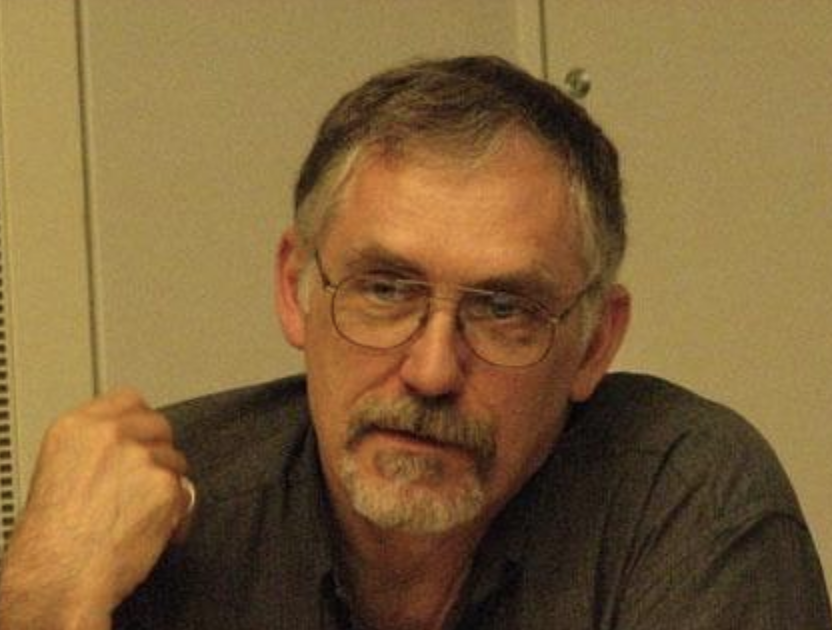The following memorial announcement was published by ACH.
The Association for Computers and the Humanities is sad to share the news of David L. Hoover’s passing on May 25, 2023. David served on the ACH Executive Board from 2005 to 2008, and as Vice-President in 2006-2007. For decades, he was among the most faithful presences at the annual DH conference (remarkably, he presented a paper at every DH conference from 2001 through 2020). David has also long been an instructor at the Digital Humanities Summer Institute, and a productive contributor to our community’s scholarly journals, edited collections, and monographs. David is survived by his wife, Danise, and their three children, Rachel, Peter, and Mary Kate.

Below we are honored to share reminiscences of David by Dr. Barbara Bordalejo, one of his PhD students and now herself a leader in the DH field, currently serving as President of ACH’s Canadian sibling organization, CSDH/SCHN.
David Hoover was a professor at NYU’s English Department, where he had worked since 1981. He was a linguist and a digital humanist working on computational stylistics and text analysis. David received his B.A. from Manchester College and his M.A. and Ph.D. from Indiana University. He published widely on authorship attribution, stylometry, and stylistic evolution.
His latest book, Modes of Composition and the Durability of Style in Literature (Routledge, 2020), explores the relationship between style changes and mode of composition, and was the result of years of enquiry on the impact of authorial compositional practices on literary style.
David was a generous teacher, scholar, and friend to many in the academic community. His collaborations with Jan Rybicki and Maciej Eder were as much the result of intellectual exchange as they were about amicable affection. His long involvement in DHSI was also a testament to David’s commitment to the community and his personal relationship with Ray Siemens and his team.
I first met David as an incoming Ph.D. student in 1997. He was my academic advisor and later became my thesis supervisor. Almost immediately, I realized that he was a curious and keen observer of others, as well as of himself. Perhaps his powers of observation arose from his linguistics training, or (and this might be closer to the truth) he became a linguist because he was so observant. In his classes, David would ask students to pronounce “cot” and “caught,” he would ask them whether they were “bringers” or “takers,” and what they called fizzy sweet drinks (soda, pop, cola) or supermarket wheeled carriers (cart, trolley, buggy). With that information, David was able to tell where students came from.
For me, it was different. As a non-native speaker of English, I couldn’t even tell that the then-president of the United States had a strong Arkansas accent. David had to teach me that “cran” was not originally a morpheme in English, but that it was becoming one thanks to Cran-Apple and Cran-Raspberry juice. Unsurprisingly, he was delighted when I presented him with the history of the word “lox” and why it was prevalent in NYC but not in Boston. He was a memorable professor, the kind of person who teaches you things you never forget, a master of the art of linguistic artifice, always keen on improvising limericks or finding ingenious wordplay: at the Tübingen ALLC/ACH conference (2002) he stopped by a cannon read the inscription next to it and promptly informed everyone he had found “the canonical text.”
David often treated himself as an object of study. One day he would demonstrate how he could put on a glove single-handedly, another he would explain how he had discovered he was ambidextrous (because when he cleaned strawberries, the piths would end up in his left hand). In doing that, he inspired others to try to be observant as well, which was useful when he assigned an exercise to produce phonetic transcription of one’s speech. It was then I learned that David pronounced “of” and “off” differently.
David’s voice was very expressive. He was a marvelous reader of fairy tales. In 2002, inspired by “Ladle Rat Rotten Hut,” he wrote “Tree Bellicose Graph, A Wrenched Fairy Tale,” which he described as an extended philological pun. To this day, I love to hear the mp3 recording of his reading, and I used it to put my child to sleep when she was a baby.
His stories were always funny or exciting or both. David could outwit the smartest person around. With me, he was always patient, kind, and understanding. I will miss him dearly.
